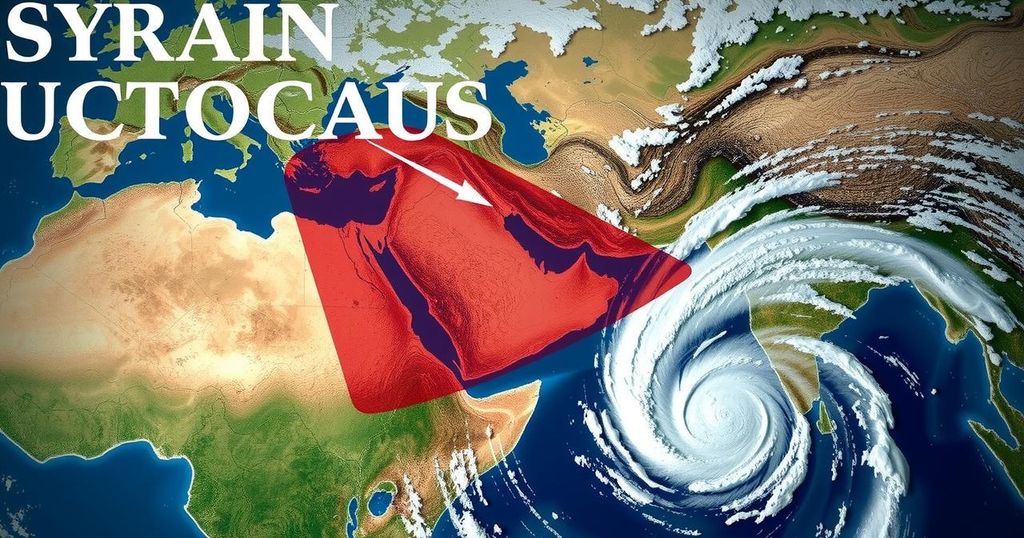This article provides updates on humanitarian situations in Ukraine, the Occupied Palestinian Territory, Syria, and areas affected by Tropical Cyclone Dikeledi. Key developments include UN officials’ engagement in humanitarian responses, ongoing access issues in Gaza, health campaigns in Syria, and relief efforts following the cyclone in Madagascar and Mozambique.
In Ukraine, Under-Secretary-General for Humanitarian Affairs, Tom Fletcher, is actively engaging with local authorities and humanitarian partners during his visit. He toured areas affected by missile strikes, such as a medical clinic in Zaporizhzhia, and observed the efforts of first responders in the Donetsk region. Fletcher’s activities aim to bolster cooperation between the UN and Ukraine amidst ongoing conflicts. He will present humanitarian and refugee response plans for Ukraine and the region in a forthcoming press conference in Kyiv.
In the Occupied Palestinian Territory, the humanitarian situation in Gaza has reached a critical stage. The Office for the Coordination of Humanitarian Affairs (OCHA) reports significant impediments to UN efforts to deliver essential aid due to ongoing hostilities and restrictions by Israeli authorities. Displacement continues amidst evacuation orders, with many civilians reporting severe shortages of food, water, and sanitation. Efforts are ongoing to protect civilians, particularly in evacuation zones.
In Syria, OCHA highlights ongoing humanitarian support despite volatile security conditions. A cholera vaccination campaign was conducted in Al-Hol camp, while severe water shortages were reported in Aleppo and Deir-ez-Zor. Infrastructural challenges, including disrupted telecommunications, remain significant barriers to effective humanitarian assistance.
The humanitarian response to Tropical Cyclone Dikeledi is unfolding as it affects regions in southeast Africa. In Madagascar, the cyclone resulted in casualties and significant displacement. Relief efforts include the distribution of essential supplies, while Mozambique braces for further challenges from the cyclone. The UN aims to assist over 400,000 individuals affected, contingent upon adequate funding for relief initiatives.
The global humanitarian crises unfold with significant developments concerning Ukraine, Gaza, Syria, and the effects of Tropical Cyclone Dikeledi in southeast Africa. These regions experience acute challenges such as conflict-related displacements, severe access restrictions to vital aid, environmental calamities, and public health threats like cholera. Understanding these multifaceted crises emphasizes the importance of international cooperation and timely humanitarian intervention to alleviate suffering and support affected communities.
The current humanitarian landscape reveals pressing challenges across various regions, notably Ukraine, Gaza, Syria, and those impacted by Tropical Cyclone Dikeledi. Efforts by UN officials and humanitarian partners are crucial in navigating these crises to provide life-saving support. It is essential for the international community to respond swiftly to their needs and ensure the protection and wellbeing of vulnerable populations facing these crises and disasters.
Original Source: www.unocha.org







